Timeline: Controversies dog Garda
- Published
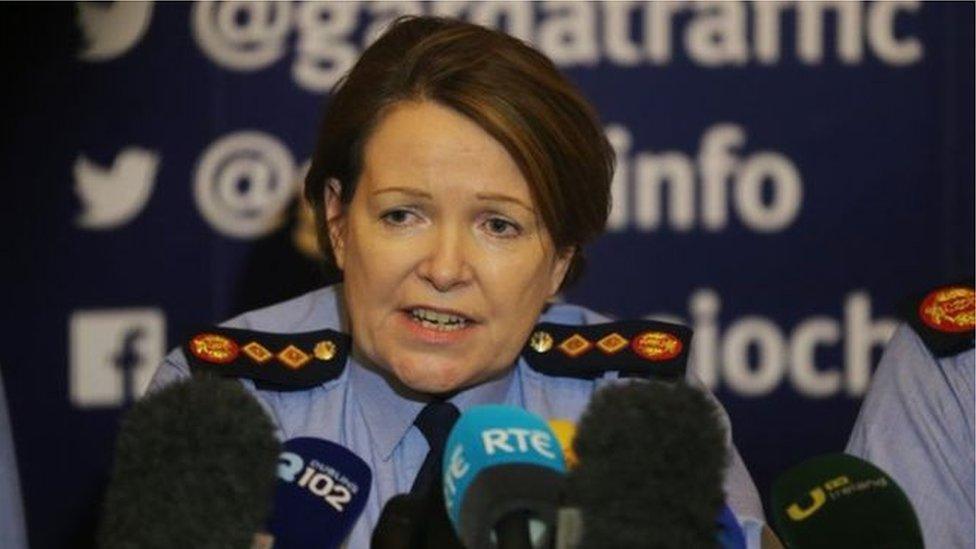
Garda commissioner Nóirín O'Sullivan
The Irish police, An Garda Síochána, has been dogged by scandals in recent years.
Allegations about the abuse of the penalty points system, raised by two whistlebowers, eventually led to the resignation of the then Garda commissioner Martin Callinan in 2014.
Since then, an alleged smear campaign against one of the whistleblowers, as well as news that almost one million recorded breath tests did not take place and that a separate error caused almost 15,000 wrongful traffic convictions, have resulted in increasing pressure on the current commissioner Noirín O'Sullivan.
November 2012
An interim report on gardaí terminating penalty points, in many cases for no stated reason, is sent from Garda headquarters to then justice minister justice Alan Shatter. It follows allegations made by two officers described as whistleblowers - former Garda John Wilson and Sgt Maurice McCabe.
December 2012
Sgt McCabe is ordered to cease using the Garda computer system at Bailieborough in County Cavan after he had looked at files linked to the alleged wiping of driving penalty points of well-connected people by other officers, mainly in 2007 and 2008.
A subsequent internal Garda investigation failed to interview the sergeant.
September 2013
A report by the public spending watchdog, the Comptroller and Auditor General, found that the Irish state had lost significant revenue because of irregularities in the penalty points system.
January 2014
The head of the force, Garda Commissioner Martin Callinan, tells the Dáil's Public Accounts Committee (PAC) that he personally finds what Garda whistleblowers have been saying as "quite disgusting".
January 2014
Sgt Maurice McCabe gives evidence in private to the Dáil PAC about the cancellation of penalty points. The committee finds him to be credible.
March 2014
Martin Callinan resigns as Garda Commissioner shortly after two cabinet ministers, Eamon Gilmore and Leo Varadkar, call on him to withdraw his comment that Garda whistle-blowers were "disgusting". Deputy Garda Commissioner Nóirín O'Sullivan succeeds him, initially on an acting basis.
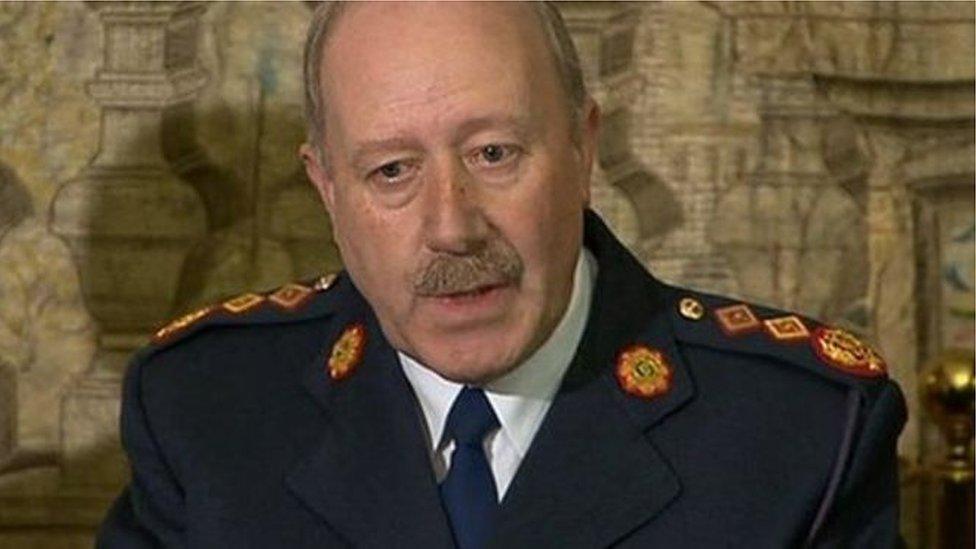
Former Garda commissioner Martin Callinan
May 2014
Ireland's Justice Minister Alan Shatter resigns following receipt of a report into allegations made by the whistleblower Sgt McCabe.
The report compiled by the barrister, Sean Guerin SC, criticises the Garda treatment of Sgt McCabe and recommends a Commission of Investigation into the affair. Justice Minister Frances Fitzgerald agrees to such an enquiry which carries out its work in private. It's led by the former High Court judge, Kevin O'Higgins.
May 2016
The O'Higgins report upholds a number of Sgt McCabe's complaints about serious failings and commends him, but also notes he was prone to exaggeration on occasion. He also finds no evidence to substantiate claims of corruption by gardaí. Commissioner O'Sullivan says she "never had regarded Sgt McCabe as malicious". But, despite her public praise, opposition politicians say leaked documents show her lawyers challenged his "credibility and motivation" right to the end. Earlier suggestions of "malice" seem to have been based upon senior Garda officers' reports to the commissioner of their interviews with Sgt McCabe but he was able to debunk their assessment because he had secretly recorded his interviews.
October 2016
Supt David Taylor, the former head of the Garda press office, makes a "protected disclosure" under whistle-blower protection laws saying that he was directed by senior Garda officers including, Martin Callinan and Nóirín O'Sullivan to blacken Sgt McCabe's name. Commissioner O'Sullivan strongly denied involvement in any campaign of spreading smears. Justice minister Fitzgerald asks retired Judge Iarfhlaith O'Neill to compile a report to her on whether the matter requires further investigation.
December 2016
Judge O'Neill recommends in an unpublished report that a Commission of Investigation should carry out a private enquiry into who was telling the truth about what Supt Taylor had to say.
February 2017
The Irish government announces that Supreme Court judge, Peter Charleton, will the head the inquiry that will have to look at Commissioner O'Sullivan's mobile phone and text records. She resists calls to stand aside for the duration of the inquiry saying that she was innocent and had done nothing wrong.
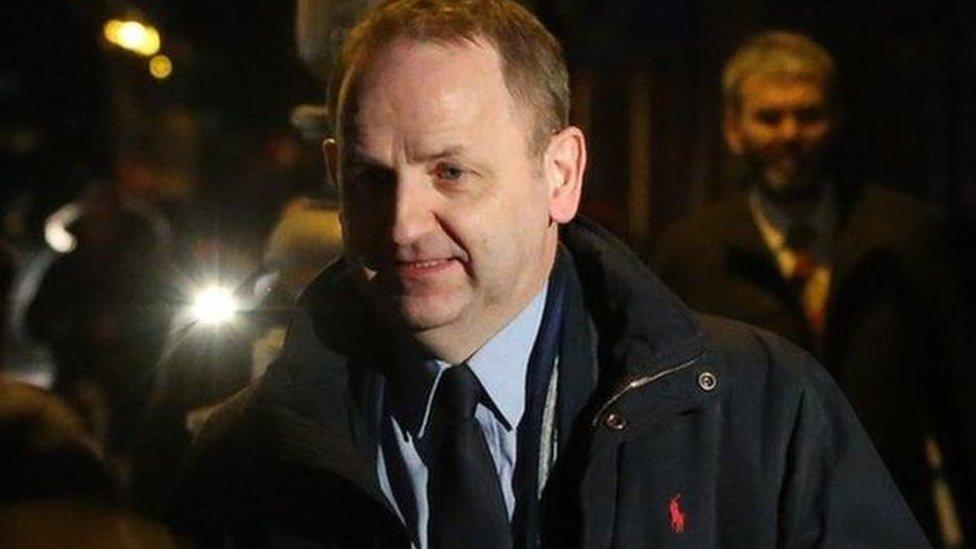
Police whistleblower Sgt Maurice McCabe was the subject of false allegations
It publicly emerges under Dáil privilege that senior Garda officers are accused of spreading a false smear that Sgt McCabe had been linked to a case of child sex abuse. It also emerges that the alleged victim was a daughter of one of the officers disciplined because of Sgt McCabe. It was a false claim with no evidence to support it. RTÉ's Prime Time programme reports that the state's child protection agency, Tusla, had created a file on Sgt McCabe and on his family after an employee copied and pasted an allegation of child sex abuse against someone else into the McCabe file. Tusla says it was an "error".
February 2017
The McCabe family reject apologies and say they intend to sue the state. The government also announces a sworn public inquiry to be headed by Judge Charleton after the McCabe family say they are totally opposed to another private investigation. The announcement is made in the midst of a political crisis that temporarily threatens a general election and seems set to result in Enda Kenny's period as taoiseach coming to an end.
27 February 2017
The Disclosures Tribunal, external - set up to investigate the alleged smear campaign against Sgt McCabe - opens its first public sitting. Chaired by Supreme Court judge Peter Charleton, it will examine allegations that senior police officers were involved in the smear campaign. The tribunal is scheduled to report in nine months, and provide an interim report to the Irish government in three months.
March 2017
The Garda publishes a report on financial irregularities at its training college.
The force's internal audit section examined financial transactions over a number of years at the college in Templemore, County Tipperary. Its report revealed that money was being spent on gifts and entertainment, and identified a non-transparent system of accounting.
It emerges that almost one million drink-driving tests recorded by gardaí did not actually take place.
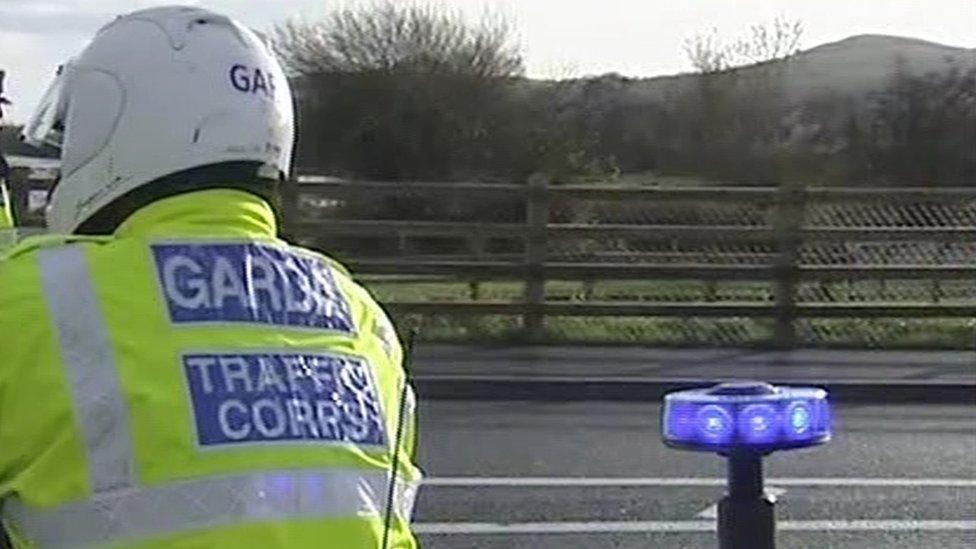
Officers recorded nearly a million more roadside alcohol tests than they had actually carried out in a five-year period up to 2016
Labour Party leader Brendan Howlin calls for Commissioner O'Sullivan to be replaced after officers admitted to a data "discrepancy". Senior police admit it was likely some of the 937,000 non-existent tests were simply made up by officers.
In addition, they have admitted a separate error that caused almost 15,000 wrongful traffic convictions. About 14,700 people had been prosecuted without a fixed-charge notice first being issued - which was required to bring them before the courts.
Officers now have to appeal all those convictions; have the court-imposed penalties removed; and the state has to cover all costs.
The government announced two investigations into the Garda, while at the same time reaffirming its confidence in Commissioner O'Sullivan.
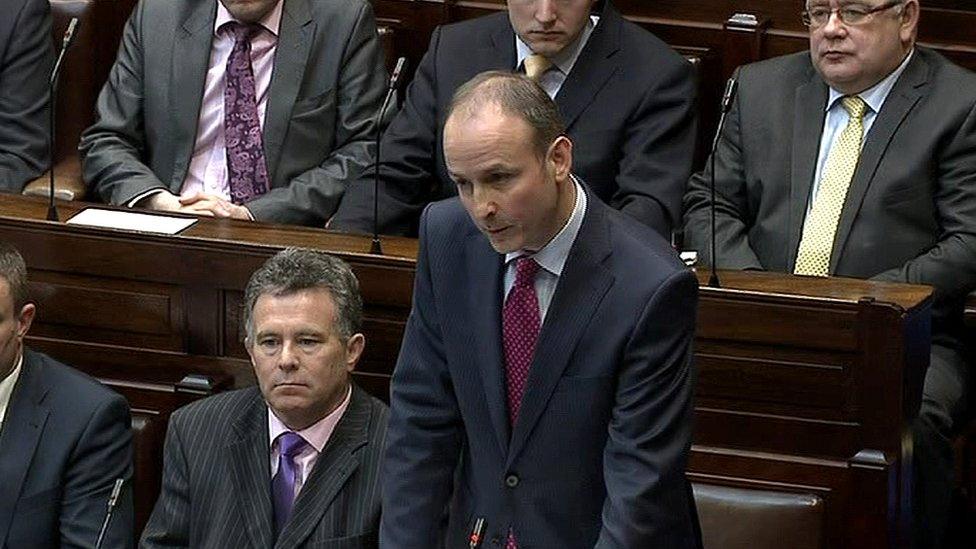
Micheal Martin, the leader of the Republic's Fianna Fáil party said Ms O'Sullivan should consider her position
Appearing before an Irish parliamentary justice committee, Commissioner O'Sullivan acknowledges gardaí may have acted dishonestly by inputting false breath test figures into the force's computer system.
She said gardaí have still not established the reasons why almost one million false breath tests were recorded. Ms O'Sullivan said she apologised "for the grave mistakes and wrongdoing during the last decade that have led to the two controversies we are here today to discuss" - the other being the wrongful traffic convictions.
A few days before the commissioner appeared, Micheal Martin, the leader of the Republic's Fianna Fáil party said Ms O'Sullivan should consider her position.
April 2017
On 12 April, Sinn Féin is to table a Dail motion of no confidence in Commissioner O'Sullivan's leadership of the force with a vote the following day.